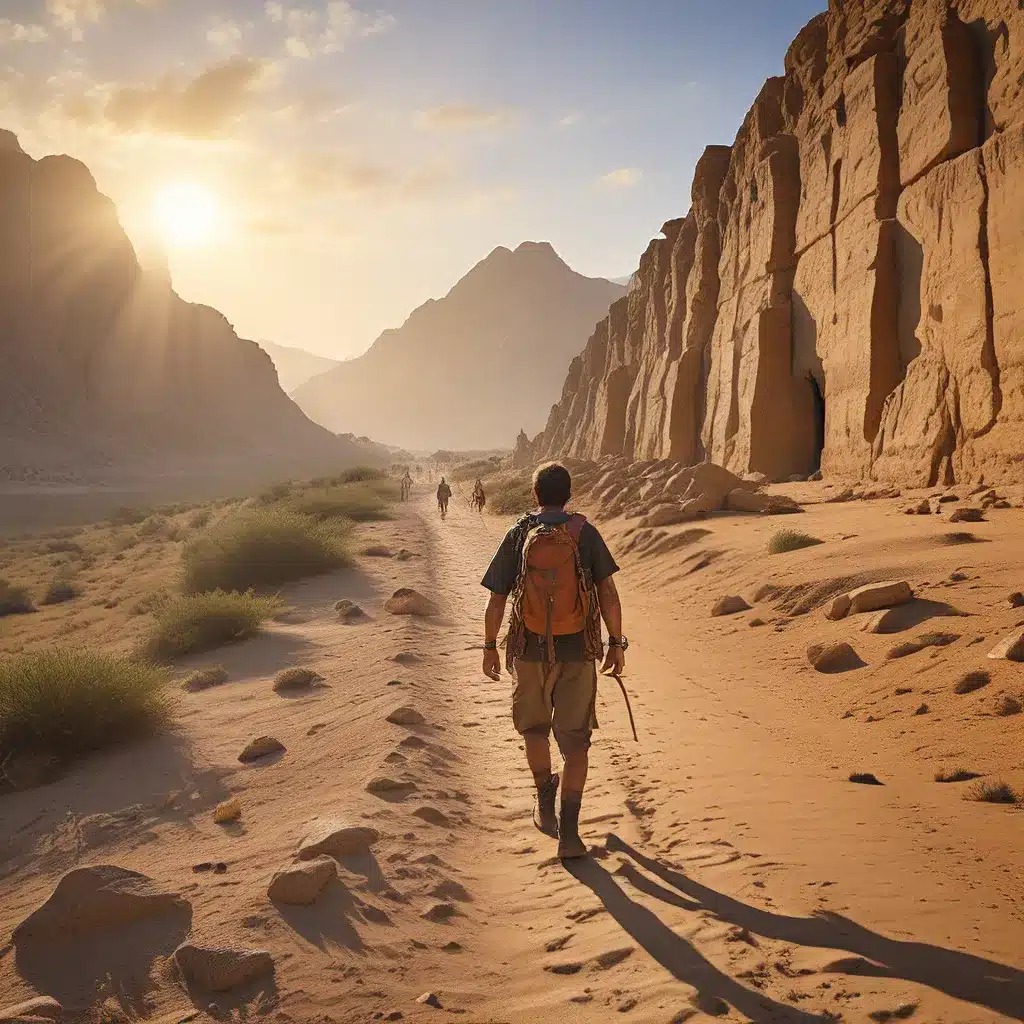
The allure of exploring uncharted territories and following in the footsteps of history’s greatest adventurers has long captivated the human imagination. From the pioneering voyages of Lewis and Clark to the groundbreaking discoveries of Charles Darwin, the stories of these legendary explorers continue to inspire and shape our understanding of the world around us.
Retracing the Paths of Pioneering Expeditions
The journey of Lewis and Clark, commissioned by President Thomas Jefferson in 1804, stands as a testament to the human spirit of adventure and discovery. Tasked with mapping the uncharted territory of the American West and establishing diplomatic relations with the indigenous tribes, the expedition set out from St. Louis, Missouri, on a mission that would forever change the course of history.
“We were now about to penetrate a country at least 2000 miles in width on which the foot of civilized man had never trod,” wrote Meriwether Lewis on the eve of their departure. “The good or evil it had in store for us was for experiment yet to determine.”
Despite the challenges and hardships they faced, the expedition’s meticulous documentation and keen observations laid the groundwork for a deeper understanding of the diverse ecosystems and cultures they encountered. Although their explorations ultimately contributed to the displacement and suffering of many Native American communities, the legacy of Lewis and Clark’s journey remains a powerful testament to the human capacity for exploration and discovery.
Following in the Footsteps of Charles Darwin
Another legendary explorer whose footsteps have captivated modern adventurers is the renowned naturalist Charles Darwin. In 1834, during his voyages aboard the HMS Beagle, Darwin made a pivotal stop in the Santa Cruz river valley of Patagonia, Argentina, where he conducted his groundbreaking geological and paleontological observations.
As modern-day adventurers followed in Darwin’s footsteps in the region, they were struck by the powerful connection they felt to the same landscape that had inspired the scientist’s revolutionary theories. “To be able to experience the same place for myself made the idea more real somehow and more powerful,” wrote one explorer, “helping to re-frame how I see the world around me too – it seems there’s value in everything, even the stones beneath our feet.”
Darwin’s keen eye for detail and his willingness to challenge prevailing scientific dogma ultimately led to his groundbreaking theory of evolution, which continues to shape our understanding of the natural world. By retracing his steps, modern adventurers not only gain a deeper appreciation for the historical significance of his work but also find inspiration in the power of exploration and scientific inquiry.
Embracing the Spirit of Adventure
The allure of following in the footsteps of legendary explorers is not limited to the distant past. Wilfred Thesiger, the renowned British explorer and travel writer, captivated a new generation of adventurers with his accounts of traversing the vast, unforgiving landscapes of the Arabian Peninsula.
In his book “Across the Empty Quarter,” Thesiger eloquently described the freedom and contentment he found in the harshness of the desert, writing: “In the desert I had found a freedom unattainable in civilization, a life unhampered by possessions, since everything that was not a necessity was an encumbrance.”
Decades later, adventurers Leon McCarron and Alastair Humphreys set out to follow in Thesiger’s footsteps, drawn to the allure of the “inherent value of deprivation and serious physical challenge” that had captivated the legendary explorer. Though their journey was far more comfortable than Thesiger’s, the modern-day adventurers still faced the challenges of the harsh desert environment, finding inspiration in the enduring spirit of exploration.
Unlocking the Mysteries of Ancient Civilizations
The pursuit of tracing the footsteps of legendary explorers is not limited to the physical realm; it also extends to the realm of archaeological discovery and the unveiling of long-lost civilizations. Ibn Battuta, the renowned Moroccan explorer of the 14th century, left behind a wealth of detailed accounts of his travels through the Middle East, North Africa, and beyond, providing modern scholars with invaluable insights into the cultural and social dynamics of the medieval world.
Similarly, the journeys of Patrick Leigh Fermor, the renowned British travel writer, have captured the imagination of modern-day adventurers and historians alike. Fermor’s accounts of his travels through Eastern Europe and the Mediterranean region have inspired a new generation of explorers to retrace his steps, uncovering the hidden histories and cultural nuances that shaped the region’s past.
Embracing the Adventure of Discovery
Whether it’s tracing the routes of pioneering expeditions, retracing the steps of groundbreaking scientists, or uncovering the hidden histories of long-lost cultures, the allure of exploring the unknown and following in the footsteps of legendary adventurers remains a powerful draw for modern-day explorers.
By embracing the spirit of adventure and curiosity that has driven these legendary figures, we not only honor their legacy but also enhance our own understanding of the world around us. Through the lens of their experiences, we can gain new insights, challenge our preconceptions, and uncover the rich tapestry of human history that continues to captivate and inspire us.
So, let us follow in the footsteps of these pioneering explorers, embracing the thrill of discovery and the humility of walking in the hallowed footprints of those who have come before us. For in doing so, we may just unlock the secrets of the past and pave the way for a future filled with wonder, knowledge, and the boundless possibilities of human exploration.


